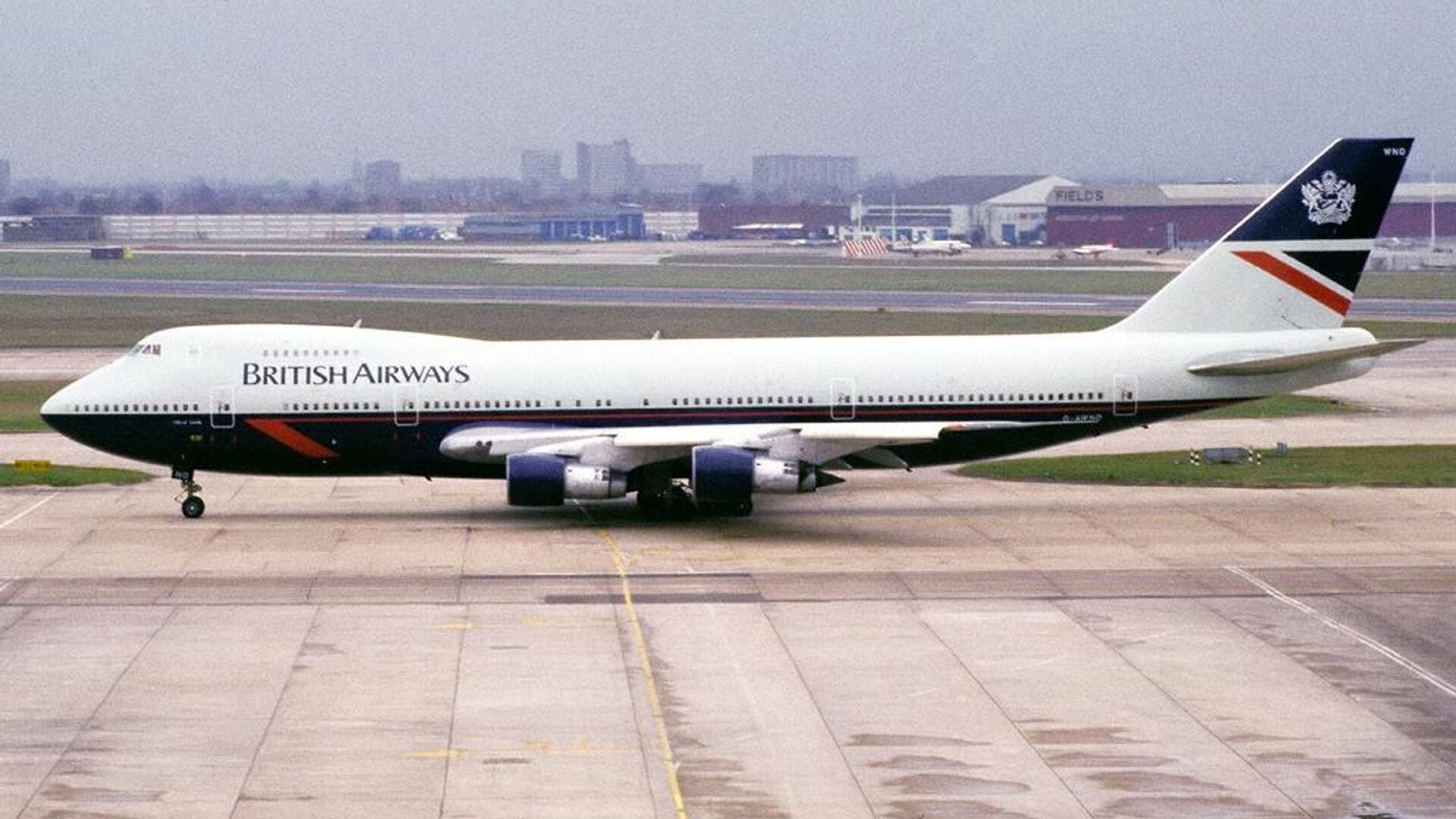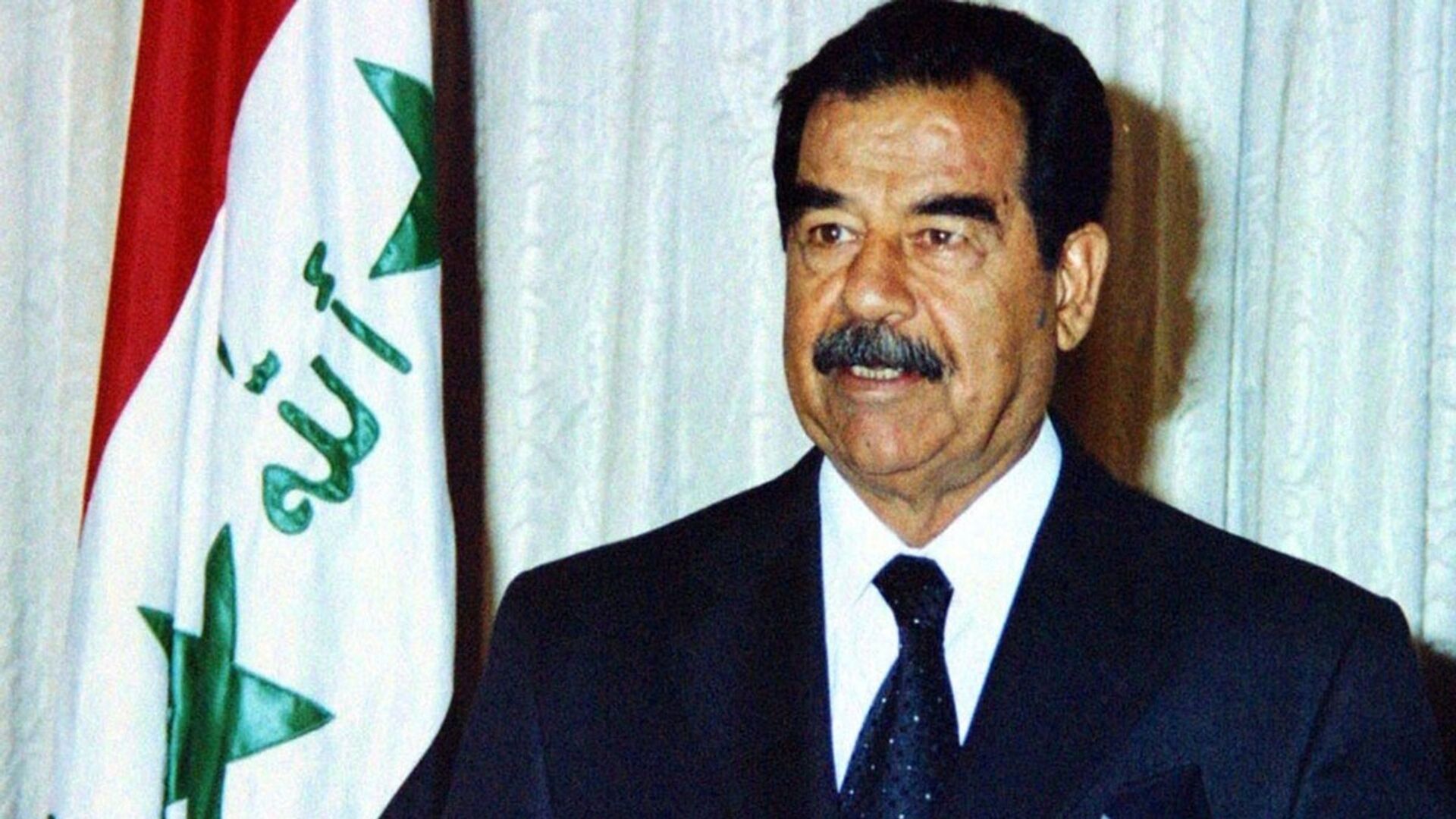‘Unacceptable Failure’: UK Admits Not Warning Hostage Flight BA149 About Iraq's Invasion of Kuwait
11:00 GMT 24.11.2021 (Updated: 15:17 GMT 28.05.2023)

CC0 / /
Subscribe
British Airways Flight 149, from London, UK to Kuala Lumpur, Malaysia via Kuwait, landed on 2 August 1990 within hours of Saddam Hussein’s forces taking control of the airport as Iraq invaded neighbouring Kuwait in 1990. The aircraft, its passengers and its crew were all captured and taken hostage.
The UK government admits to having misled Parliament and the public about the circumstances surrounding ill-fated British Airways flight 149, which was caught up in a hostage drama in 1990.
Foreign Office admits in 1990 U.K. Kuwait envoy informed Whitehall that Iraq invasion of Kuwait underway but no one then rang British Airways. BA flight 149 landed in a war zone and U.K. passengers captured. https://t.co/6pTk9O1fQd
— Patrick Wintour (@patrickwintour) November 23, 2021
Foreign Secretary Liz Truss told Parliament on Tuesday that the UK ambassador to Kuwait had informed London about reports of an imminent Iraqi incursion at approximately midnight on 2 August 1990 - more than an hour before the jet, en route from London, UK to Kuala Lumpur, Malaysia, via Kuwait, had landed at Kuwait International Airport.
When the message from Sir Michael Weston was passed on to the Foreign and Defence ministries, Downing Street and MI6 intelligence service, BA 149 was already in the air.
The message had not been circulated to BA, Truss said in a written answer, as Foreign Office files have been released on the events to Britain's national archives under the 20-year disclosure rule. The files also indicate that the British ambassador was unclear whether the Iraqi incursion was limited or large-scale.
"The call made (by the ambassador) has never been publicly disclosed or acknowledged until today. These files show that the existence of the call was not revealed to parliament and the public. This failure was unacceptable,” said Truss.
The UK Foreign Secretary went on to apologise to Parliament, expressing “sympathy to those who were detained and mistreated." Furthermore, officials are revealed to have discussed a variety of ways to suppress any information pertaining to the ambassador’s phone call, reported The Guardian. Measures suggested had included internal meetings with ministers to discuss whether the government would be faced with compensation claims by passengers if its “system failure” was revealed.
A note written by the Foreign Office’s Middle East department in August 1991 and cited by the outlet said:
“We have never mentioned HMA [Her Majesty’s ambassador] Kuwait’s telephone call at c 00.00 on 2 August in public for obvious reasons.”
Yet another note addressed to Douglas Hurd, the then Foreign Secretary’s private secretary, Stephen Wall, said:
“We have never made public the sensitive fact that the ambassador rang the duty clerk to say Iraqi troops had crossed the border.”
BA Hostage Flight
British Airways flight 149 from London to Kuala Lumpur, late taking off for "technical problems", landed in Kuwait on 2 August 1990, amid an incursion of Iraqi forces into the country. Then-leader Saddam Hussein had invaded the neighboring country claiming that it was legitimately Iraqi territory which had been artificially separated by the British empire. Iraqi forces were ousted from Kuwait after a US-led intervention. In 2003 the US led an invasion of Iraq proper, ultimately toppling Hussein.

President Saddam Hussein in 2002
© Photo : Getty Images
The British Airways jet, which had apparently unwittingly landed in a war zone, was seized by Iraqi forces which had gained control of the airport. Over 300 passengers and crew were taken hostage by the Iraqi military, imprisoned at various sites around Iraq and Kuwait, and later said to have been used as human shields. The remainder of the hostages were released five months later, in December 1990.
Speculations of ‘Deliberate Act’
The UK Foreign Secretary reiterated earlier denials that the flight was being used for a secret intelligence mission to insert British special forces into the country. There had been speculation that a team of undercover operatives were on board the jet as part of a special surveillance mission, with such claims made by BA cabin crew and passengers.
According to the Foreign Office, the newly released files are "consistent" with a statement made in 2007 that the government "did not attempt in any way to exploit the flight by any means whatever".
This live interview from Barry Manners @BarryManners hasn't been highlighted on social media by @BBCBreakfast for some reason. Outstanding and wouldn't be cornered! 😁👏 #BBCBreakfast https://t.co/7cOAnaUhDB
— Poshaudrey🧶 (@Poshaudrey) November 24, 2021
One of the passengers on that flight, Barry Manners, rejected both the apology and assertion that no special forces were on the jet. "Who on earth were they then? Members of a rugby team? These were serious guys, you only had to look at them... I know they were soldiers," he was cited as saying. Manners, who was kept hostage for four-and-a-half months, added:
"This was a deliberate act by the British government to use a civilian airliner as a military transport into what turned out to be a live-fire war zone."
Happy publication day to Operation Trojan Horse by Stephen Davis - out now!
— John Blake Books (@jblakebooks) July 22, 2021
Waterstones: https://t.co/8sN71wyoor
Amazon: https://t.co/evYRigCUSRhttps://t.co/GTiqGEojL9: https://t.co/TRgnstQ5t1 pic.twitter.com/QqOUhhnmSx
"Operation Trojan Horse", a book published earlier this year, claims that the UK government at the time knowingly put passengers at risk by using the flight to deploy undercover operatives, with the delayed take-off allowing them to board the British Airways jet.
